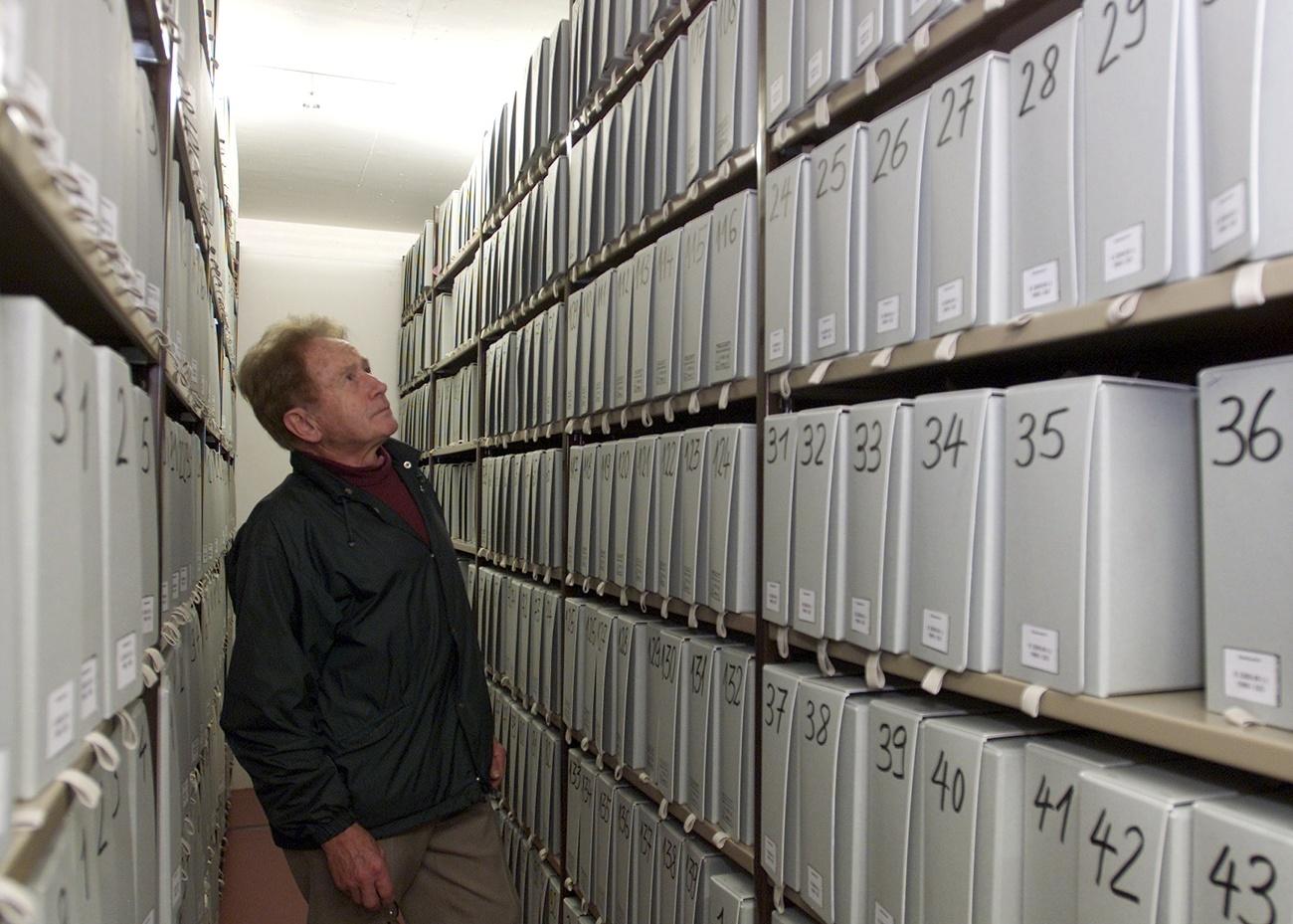
The curious incident of the documents in the Swiss army bunker

Files stored in an army bunker, dossiers that disappear and magically reappear: the recent Crypto scandal is a reminder of the importance of transparent archiving in a democracy – something that has embarrassed the Swiss authorities on several occasions.
As part of a search launched within the federal administration following revelations about the Crypto case, the Swiss secret services found – in an army bunker – documents relating to the company’s activities.
‘Crypto Leaks’ in a nutshell
Crypto, a Zug-based communications encryption firm which was liquidated in 2018, sold code-making equipment to Iran, India, Pakistan, Latin American nations and dozens of other countries. The technology was modified to let the CIA and German secret service (BND) break codes, as reported by The Washington Post along with Swiss public television, SRF, and German broadcaster ZDF.
The documents reportedly confirm that former Defence Minister Kaspar Villiger knew about the US and German espionage operation. Villiger promptly denied this, but the discovery of the documents raises many questions: Why were they in an army bunker? Who put them there? And why weren’t they in the Federal ArchivesExternal link, as required by law?

More
Swiss spy scandal documents to remain under lock and key
Rumours that a dossier relating to Zug-based Crypto had been deposited in the Federal Archives but couldn’t be found were circulating as early as last week, when the scandal was revealed on Swiss public television, SRF.
The dossier has since turned up. The Federal Archives say it was returned in 2014, having been borrowed by an office in the federal administration, and had inadvertently been filed in the wrong place. The dossier is still inaccessible to the public.
‘Standard practice’
The Swiss government is no stranger to “lost” files. In 2002 a defence ministry probe into apartheid-era links between the Swiss and South African secret services criticised the conduct of Swiss officials. The report said the Swiss secret service routinely destroyed much of the written record.
It also suggested that the secret service “most likely” destroyed documents between 1999 and 2000, despite moves by federal departments to address the issue of archiving. Former secret service head Peter Regli, who was criticised in the report, told swissinfo.ch at the time that it was standard practice in military intelligence to destroy old documents.
In January 2019 a parliamentary commission confirmed that documents relating to a covert Swiss Cold War paramilitary group known as P26, which were lost by the defence ministry, had disappeared. Critics expressed concern that the documents had been destroyed or intentionally misplaced to hide embarrassing details about neutral Switzerland’s surreptitious advances towards NATO or clandestine ties to foreign spy agencies.
Call for greater powers
So does Switzerland have a general archiving problem? No, says historian Sacha Zala, president of the Swiss History SocietyExternal link. However, some specific problems exist.
“Experience shows that some federal security bodies, such as the army, the office of the attorney general and the information services, often feel entitled to disregard the archiving lawExternal link,” he says.
For this reason, during the discussions following the P26 document controversy the Swiss History Society called for greater powers for the Federal Archives and a strengthening of the rights of researchers.
“The Federal Archives should have powers similar to those of the Federal Audit Office, that is, they should be able to carry out checks,” Zala says. “In addition, a conciliation body should be set up to protect the rights of researchers in the context of consultation requests.”
Federal Archiving Law
The Federal Archiving LawExternal link has been in force since 1998. It regulates the archiving of documents produced by the government, parliament and federal administration and access to archival funds. Under this law, state bodies are required to offer all documents no longer in use to the Federal Archives in Bern. A dossier must be handed over within ten years of the date on which the last document was added.
Federal archives become available for consultation by the general public free of charge after 30 years. However, the period is 50 years for records that are classified “according to the names of people and which contain sensitive personal data or personality profiles, unless the person concerned has consented to their consultation”.
In addition, the government may extend the ban on consulting certain documents for a limited period “if there is an overriding and legitimate public or private interest in preventing the consultation by third parties of certain categories of archive records”.

More
Busted! Swiss spy scandals through the years
(Adapted from Italian by Thomas Stephens)

In compliance with the JTI standards
More: SWI swissinfo.ch certified by the Journalism Trust Initiative





























You can find an overview of ongoing debates with our journalists here . Please join us!
If you want to start a conversation about a topic raised in this article or want to report factual errors, email us at english@swissinfo.ch.